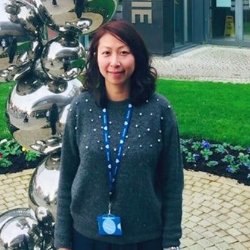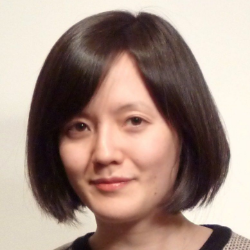Early Career Researchers working in Metabolic and Endocrine in Greater Manchester
- 18 February 2020
- 4 min read
The following three Early Career Researchers (ECRs) are working in the Metabolic and Endocrine health specialty area in Greater Manchester. Here, they explain how they arrived in research, what being an ECR entails for them, and why they wanted to work in research in the first place.
Salina Tsui

Salina is a Clinical PhD Research Fellow and NIHR Academy Fellow.
What is your career background?
I completed my pharmacy degree and qualified as a pharmacist in New Zealand in 2004. I moved to the UK in 2006 and initially worked in the community and then moved on to become a hospital pharmacist. I then completed a Masters in Science degree in clinical pharmacy, international practice and policy at the School of Pharmacy, University of London, in 2009. After that I worked at the Barts Health NHS Trust, Barking, Havering and Redbridge NHS Trust and The Christie as a clinical trial pharmacist where I had experience in setting up trials in different disease areas: paediatrics, cardiology, rheumatology, HIV, sexual health, dermatology, stroke and oncology.
What does your role entail?
My role involves working with other health professionals, commercial and non-commercial sponsors, R&D and NIHR to facilitate clinical trials set up in pharmacy. This year I succeeded in obtaining the position of one of the Living with and Beyond Cancer PhDs co-funded by The Christie charity, Endocrine, Lymphoma and Leukaemia research at The Christie and the NIHR Greater Manchester Patient Safety Translational Research Centre (PSTRC).
My PhD is on ‘Musculoskeletal Health in Adult Haematological cancers’. Improvement in detection and treatment in cancer have greatly improved survival rates compared to 40 years ago. Cancer survivors are living longer but late effects after treatment can often be chronic and lead to suboptimal health outcomes. The PhD aims to identify musculoskeletal health burden in terms of clinical outcomes and quality of life in haematological cancer survivors.
Why do you do research?
Research always fascinates me as a way to improve our healthcare for the public. My research journey started when I did my Masters degree where I thoroughly enjoyed a research project on identifying ‘Patients' information needs on discharge medication’ at the Buckingham Healthcare NHS Trust. The short research experience enabled me to see how research can help to solve NHS problems and improve patient care. Resources in the NHS are limited and identifying ways to prevent or treat at-risk patients to avoid future complications, improve quality of life and reduce healthcare costs are something I am interested in.
I have been very fortunate to be working within a very research-active trust - The Christie NHS - where they fully support me in developing my research career. In future, I hope to pursue a career in research on public and preventive health with special interest in preventing and reducing musculoskeletal health outcomes in cancer population.
Louise Hunter

Louise is an NIHR Academic Clinical Lecturer.
What is your career background?
I’m an Endocrinology & Diabetes trainee. I took time out of my clinical training to do a Clinical Research Training Fellowship, funded by the Medical Research Council (MRC). Last year, I completed my PhD at the University of Manchester, looking at genomic mechanisms underlying circadian control of metabolism. Organisms have been keeping time for billions of years, and the mammalian circadian clock is a particularly complex molecular feedback loop. I’m interested in how this regulates metabolic processes, and how it might be altered in diseases such as obesity.
What does your role entail?
Now I have started the NIHR Clinical Lectureship scheme, to further pursue my research interests whilst I complete my clinical training. I spend half my week working as an Endocrinology/Diabetes registrar at Manchester University NHS Foundation Trust, and half my week across the road at the University of Manchester, putting my new research plans together.
Why do you do research?
Initially, because I find hormones fascinating! I got hooked as a medical undergraduate, after spending time with a research group in the Netherlands on an Erasmus scheme. Now, with more clinical experience under my belt, I really enjoy how research and clinical work contrast and yet complement each other.
Victoria Chatzimavridou-Grigoriadou

Victoria is an Academic Clinical Fellow (ST4) in Endocrinology and Diabetes in the North West Deanery, currently based at The Christie.
What is your career background?
My research interests focus on endocrine late effects of cancer treatment and immunotherapy-related endocrinopathies. After graduating from the medical school of the National and Kapodistrian University of Athens (Greece 2014), I started my clinical training in the North West Deanery. In parallel, I have developed an interest in clinical research and have contributed to the conduct of clinical research studies and meta-analyses.
What does your role entail?
In order to devote more time to research and receive formal training in clinical research methods, I applied for an Academic Clinical Fellowship in Endocrinology and Diabetes, which offers clinical trainees an excellent opportunity to spend 25 per cent of their time in research. Over the next three years I endeavour to design a clinical and translational research project aiming to identify predictors of endocrine adverse events due to immunotherapy cancer treatment. Following that, I will aim to apply for time off my clinical training programme to undertake a PhD.


